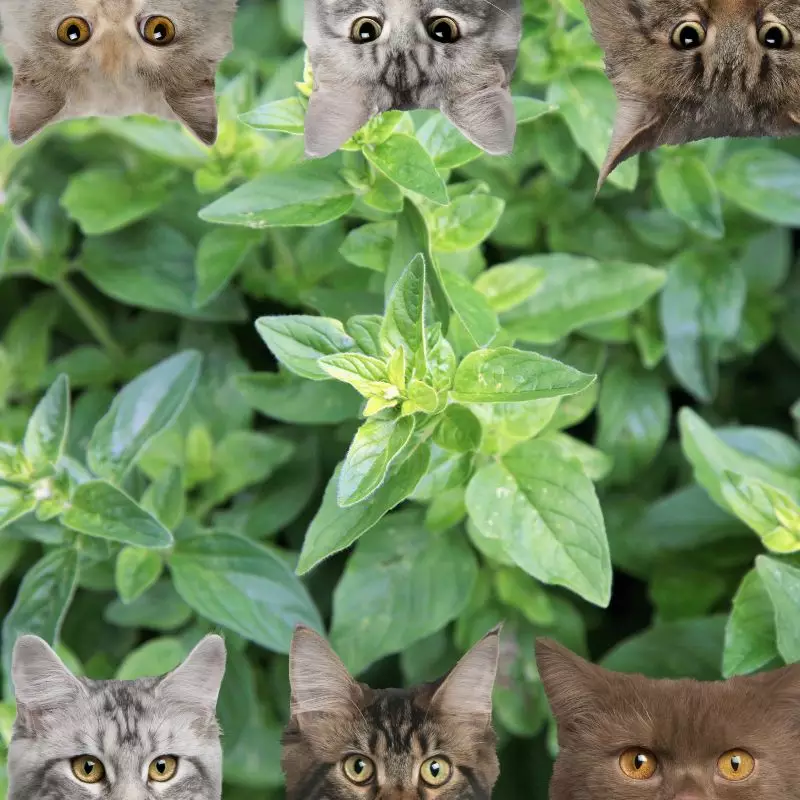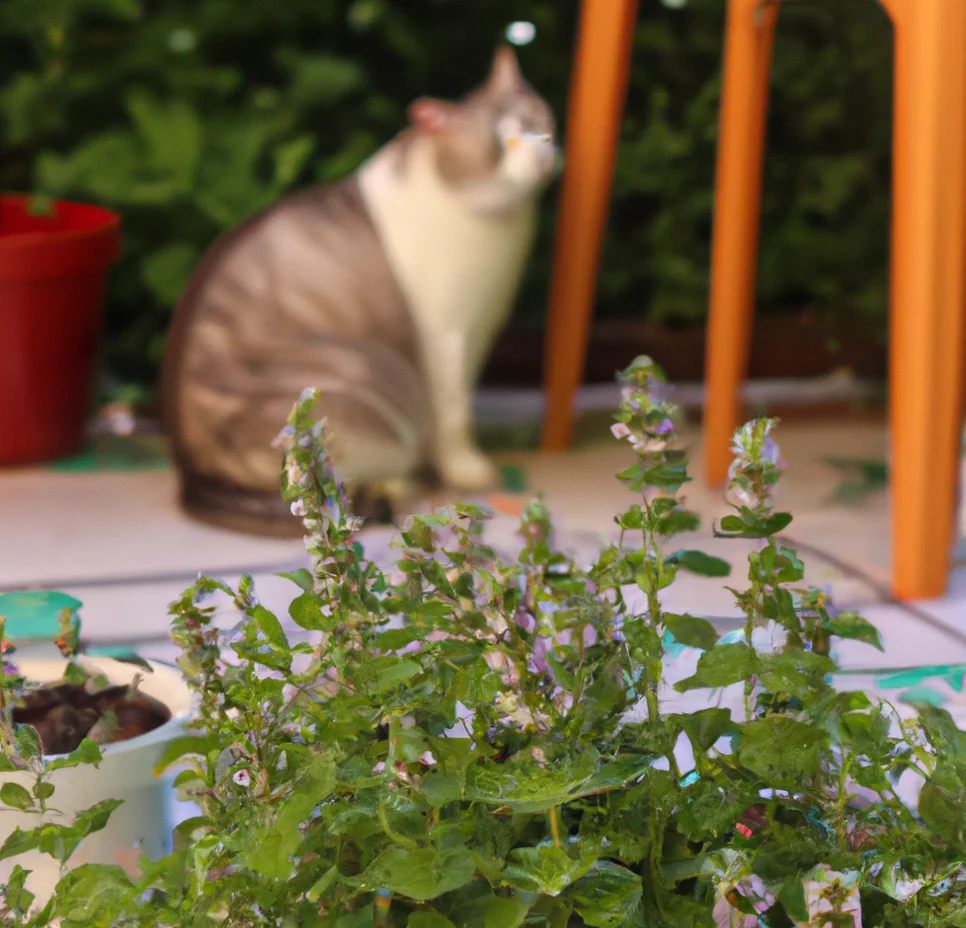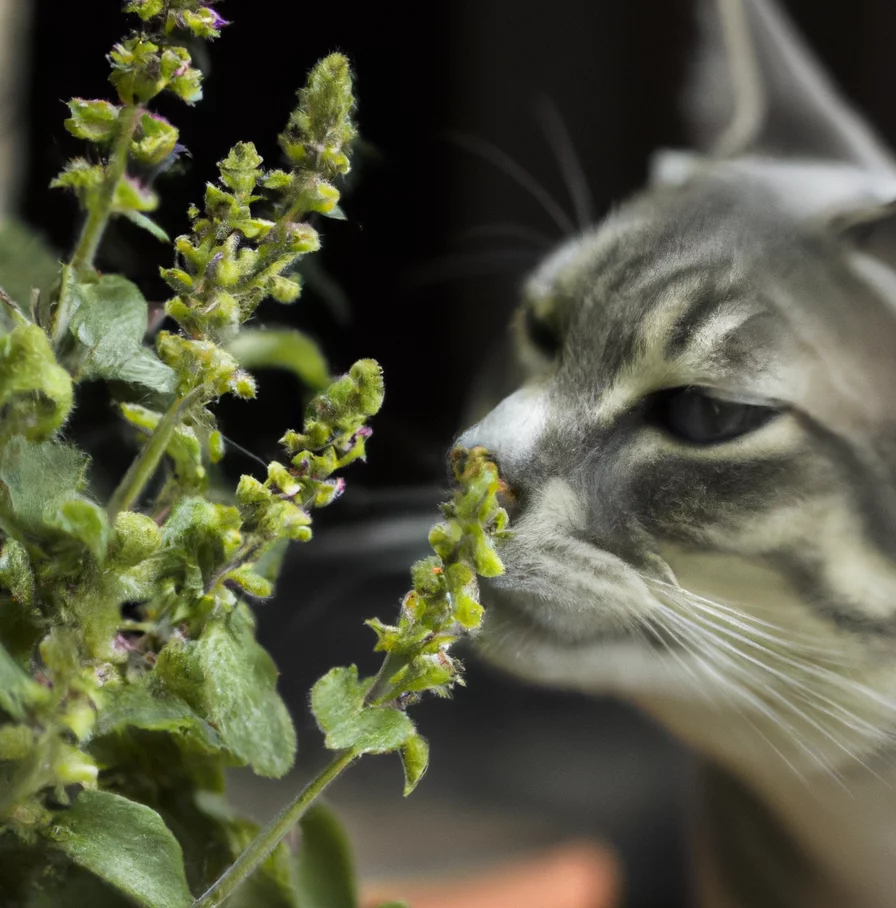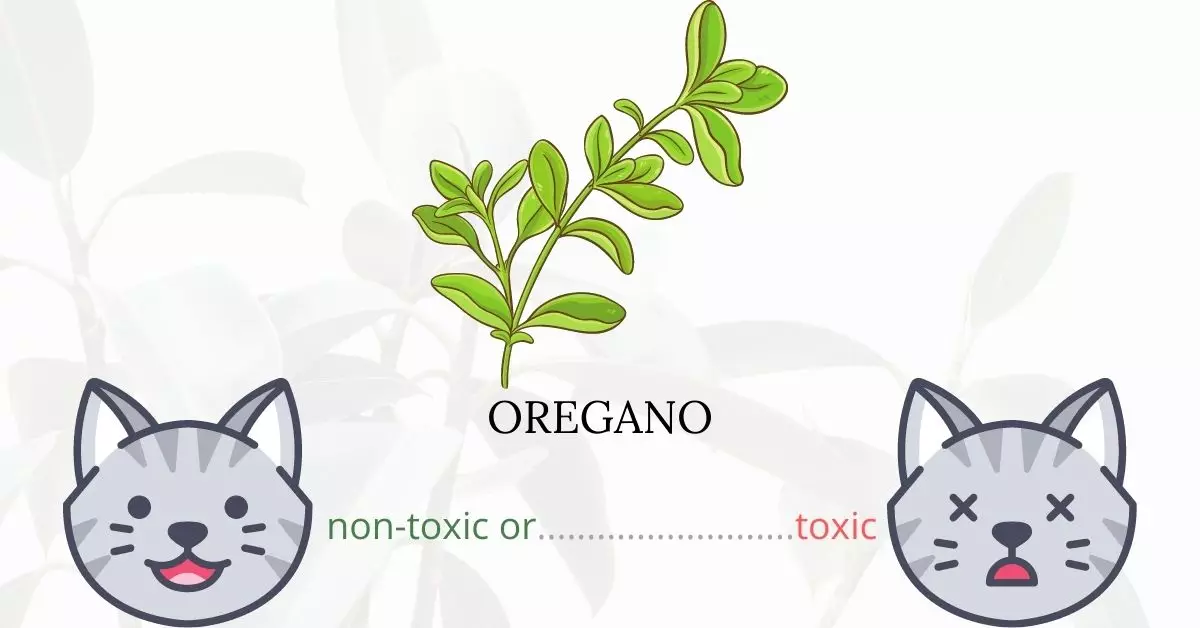Yes, oregano can be toxic to cats when consumed in significant amounts. The essential oil in oregano may cause stomach upset in cats, potentially leading to a toxic reaction and even irreversible liver damage. Flavones and polyphenols, toxic to cats, are found in both fresh and dried oregano leaves. While the symptoms caused by oregano poisoning are generally mild and typically manifest only after considerable consumption, the real concern arises when pet owners mistakenly believe that because the plant is safe for human use, its essential oil would also be safe for cats.
This article is a product of extensive collaboration with a team of experienced DVMs (doctors of veterinary medicine). Their invaluable insights and expertise ensure that we provide accurate and up-to-date information on the potential risks plants like oregano pose to cats. Furthermore, our research draws from high-authority sources, including ASPCA and PetMD, guaranteeing a comprehensive understanding of the subject.
Clinical Signs of Oregano Poisoning in Cats

Oregano, while commonly used for culinary and medicinal purposes in humans, poses certain risks for our feline friends. When a cat comes into contact with, smells, or consumes the oregano plant or its essential oil, various clinical signs may manifest, primarily due to the presence of flavones and polyphenols that are toxic to cats. Here’s a deeper look into each symptom and its potential cause:
- Nausea: Caused by the immediate stomach discomfort after ingestion. The compounds in oregano irritate the cat’s gastrointestinal system, leading to a feeling of sickness.
- Vomiting: A direct result of the nausea and the body’s mechanism to expel the harmful substances ingested.
- Diarrhea: The cat’s system tries to rapidly rid itself of the ingested toxins, resulting in gastrointestinal upset and diarrhea.
- Shallow Breathing: This may arise due to the body’s stress response or a potential mild allergic reaction to the plant compounds.
- Oral Irritation: The direct contact of oregano with the oral mucosa (lining of the mouth) can cause inflammation or a burning sensation.
- Anorexia: The cat may lose its appetite due to the overall discomfort and the gastrointestinal upset caused by oregano.
- Liver-related Issues: Continuous or high exposure to oregano, especially its essential oil, can lead to irreversible liver damage as the liver attempts to process and detoxify the harmful compounds.
- Collapse: In extreme cases, if a cat is exposed to large amounts of oregano or its oil, the cumulative toxic effects can lead to weakness and eventual collapse.
If you suspect your cat has been exposed to oregano or displays any of these symptoms, it’s essential to consult with a veterinarian promptly.
First Aid and Treatment of Oregano Poisoning in Cats

If the cat’s mouth has been burned or irritated as a result of the exposure, it will need to be cleansed with water. To relieve the discomfort, any other body parts that have come into contact with the oil should be properly cleaned.
Extra attention and possibly hospitalization may be required depending on the cat’s symptoms. To prevent dehydration caused by prolonged gastrointestinal distress, intravenous fluids may be required. Throughout the incident, the cat’s respiration may need to be controlled.
Recovery from Oregano Poisoning in Cats

If a cat has eaten an oregano plant, it should recover fully and quickly, with no long-term health consequences. Consumption of oregano essential oil has the potential to harm the cat’s liver permanently, necessitating continuing treatment.
Prevention of Oregano Poisoning in Cats
Avoid growing oreganos at home to prevent your cat from accidentally nibbling on it. Lessen your cat’s outdoor access to limit his exposure to oregano or other toxic plants that may be growing in your surroundings.
Under no circumstances should oregano essential oil be used on cats. Even topical use can cause irritation and pain in the cat. Before putting any other form of essential oil on your cat, check with your veterinarian to ensure that it will not harm the animal.
If you love plants but have cats at home, check out these lists:





